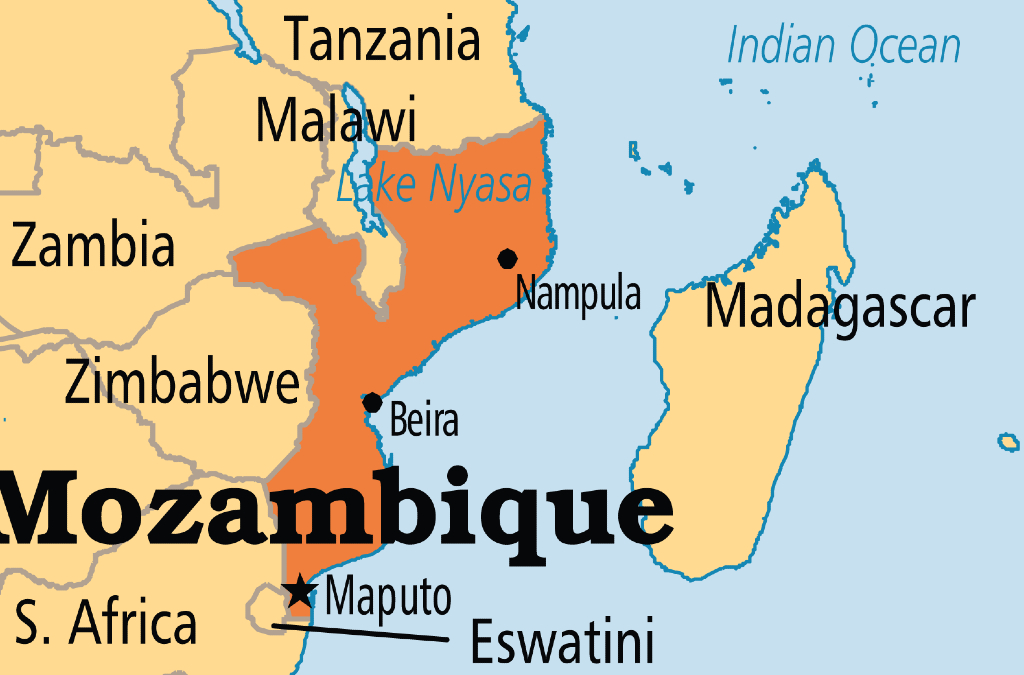Owusu on Africa
A new investment model could be developed in the face of insecurity in Africa


By Fidel Amakye Owusu
Years ago, the discovery of vast natural gas reserves off the coast of Mozambique ignited hopes for a brighter economic future. For a nation that had endured decades of civil war – a conflict deeply entangled in Cold War geopolitics – this find was seen as a potential turning point.
It promised not only to transform Mozambique’s economy but also to alleviate the widespread poverty that had plagued the country since the end of its brutal conflict.
The discovery quickly attracted approximately US$20 billion in investments, marking a historic milestone for Africa’s energy sector. Among the key players, TotalEnergies alone committed nearly US$4 billion, signaling global confidence in Mozambique’s potential to become a major player in the international energy market.
The excitement was palpable: this was an opportunity to replicate the prosperity seen in other resource-rich nations, lifting millions out of poverty and positioning Mozambique as a regional powerhouse.
The Shadow of Instability
However, the path to progress has been anything but smooth. In 2021, the project faced a significant setback when ISIS-linked militants launched attacks in the Cabo Delgado region, where the gas fields are located.
These violent incursions forced TotalEnergies to suspend operations indefinitely. The disruption underscored a harsh reality: while Mozambique’s gas reserves hold immense promise, they exist within a fragile socio-political landscape.
What does this mean for Mozambique – and for Africa as a whole? The situation serves as a stark reminder that global terrorism is not confined to specific regions; it is increasingly finding footholds across the continent.
Yet, in Mozambique, the roots of the insurgency run deeper than mere ideological alignment with ISIS. The conflict in Cabo Delgado reflects long-standing grievances tied to regional neglect.
For decades, development efforts have been heavily concentrated in Maputo, the capital city in southern Mozambique. Meanwhile, northern regions like Cabo Delgado have languished, burdened by high poverty rates, inadequate infrastructure, and limited access to essential services.
This glaring disparity has created fertile ground for extremist groups to recruit disenfranchised youth and exploit local frustrations. By targeting economic projects like the gas developments, these groups aim to deepen instability and further their influence.
A Blueprint for Progress
While Mozambique’s challenges are far from unique, they highlight a critical lesson for investors and policymakers alike: economic development cannot succeed without addressing social inequities. Investors must adopt a business model that prioritizes community welfare from day one – not as an afterthought once operations begin or conclude.
Social investment should be integral to every project’s design, ensuring that local populations benefit directly and tangibly.
How can this be achieved? One approach is to establish joint oversight mechanisms involving both governments and private investors.
Such consortia could ensure that funds earmarked for education, healthcare, and infrastructure are allocated efficiently and transparently. Relying solely on government agencies risks mismanagement or corruption, which often plague resource-rich nations.
By contrast, collaborative governance models can foster accountability and deliver results that resonate with local communities.
Focusing on youth employment is another crucial step. Programs designed to equip young people with skills relevant to energy projects – or other sectors – can create a sense of ownership and stability.
When communities see tangible benefits, such as job opportunities and improved living conditions, the allure of joining extremist groups diminishes. This not only safeguards economic ventures but also contributes to lasting peace and prosperity.
Lessons from Elsewhere
The stakes are high, as evidenced by experiences elsewhere on the continent. In southeastern Nigeria, for example, a failure to invest meaningfully in local communities has led to staggering losses for companies operating in the oil-rich Niger Delta.
Protests, sabotage, and theft have cost investors billions – far exceeding initial projections. These incidents underscore the importance of proactive engagement with host communities.
Of course, implementing such strategies in Mozambique will require overcoming resistance from entrenched interests and navigating bureaucratic hurdles. But with coordinated action among investors, supported by regional bodies like the African Union and international organizations, meaningful change is possible.
Together, these stakeholders can craft solutions that balance profitability with social responsibility, fostering environments where both businesses and communities thrive.
Toward a Brighter Future
Mozambique stands at a crossroads. Its gas reserves represent an unparalleled opportunity to reshape its economy and improve the lives of millions.
Yet, realizing this vision demands more than financial investment – it requires a commitment to inclusive growth and sustainable development.
By addressing the root causes of instability and empowering marginalized communities, Mozambique can turn its gas discovery into a catalyst for transformation. The road ahead may be fraught with challenges, but with the right approach, it is one paved with hope.
For Mozambique – and for Africa – the choice is clear: progress must be shared, or it risks being lost altogether.
Fidel Amakye Owusu is an International Relations and Security Analyst. He is an Associate at the Conflict Research Consortium for Africa and has previously hosted an International Affairs program with the Ghana Broadcasting Corporation (GBC). He is passionate about Diplomacy and realizing Africa’s global potential and how the continent should be viewed as part of the global collective.

